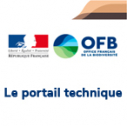The Natura 2000 network celebrates its 30th anniversary
What is Natural 2000 ?
Natura 2000 is a European network of natural land and marine sites designed to protect remarkable heritage species and habitats, while reconciling human activities. The Natura 2000 network of sites was created in application of the only two European directives in favour of nature protection: the Birds Directive and the Habitats Directive.
Established in 1992, the Natura 2000 network now includes nearly 27,000 sites in the European Union, making it the world's largest network of ecological sites on a continental scale. A very concrete example of collaboration between Member States.
History of the Natura 2000 network in France
To create its national network of sites, France has chosen a local approach based on consultation with the various stakeholders (farmers, fishermen, hunters, private foresters, etc.). These consultations make it possible to define the management objectives as well as the actions to be undertaken in response to the ecological challenges and pressures observed.
In the late 1990s, the network of sites on land began to be set up on the basis of scientific inventories and the Natura 2000 network was finally expended on a large scale in the early 2000s.
In 2006, while the terrestrial network was being put in place, France set about building the marine network, this time in consultation with new stakeholders, the users of the sea.
Today, with 1,756 sites, including 221 marine and mixed sites, representing 13% of the territory of Metropolitan France and more than 13,000 municipalities concerned, the French network is considered satisfactory for ensuring the preservation of the targeted species and habitats.
Future challenges include
- The enlargement of governance, towards elected representatives, citizens and other policies, as the Natura 2000 network is part of the large family of protected areas, major tools for the recovery of biodiversity. The so-called "3D-S" decentralisation law thus bets on coherence in public policies for territorial planning and development and the use of European funds by entrusting the management of Natura 2000 with the regions.
- The quest for effectiveness with very ambitious objectives not only to maintain but also to restore the state of conservation and a desire to report precisely on this effectiveness.
Thanks to Natura 2000, we regularly intervene in the restoration of ponds to prevent them from disappearing, and with them the whole ecosystem they constitute. Our objective is to observe in the coming years terns and gravelots coming to nest on the banks of the Rhine as they did decades ago, as well as yellow-bellied toads, green toads and horned toads.
Erwan HORNIER, site manager of the Rhine National Hunting and Wildlife Reserve
The OFB and the Natura 2000 network
As an institution in charge of the preservation of living-being, the French Biodiversity Agency is heavily involved, both in the constitution of the network and in the management of sites-until now. The OFB has managed or co-managed more than one hundred terrestrial and marine sites.
Since 2001, the French Biodiversity Agency has been running the Natura 2000 resource centre, which supports managers, encourages their development of skills by offering training or organising exchange days, produces methodological guidelines and experience feedback sheets, and sets up tools.
The institution also leads the Life Marha project, which aims to improve the conservation status of natural marine habitats while mobilising all Natura 2000 stakeholders at sea. This integrated Life project is going to last eight years (2018-2025), concerns 170 Natura 2000 sites at sea and has its own budget of 22 million euros.
Therefore, the OFB, via PatriNat, is the scientific reference service for evaluating the coherence of the network, conducting studies and standardised scientific inventories in order to measure the effectiveness of certain measures carried out and thus allow for continuous improvement.
Seminar to celebrate 30 years of Natura 2000
On 24th and 25th February 2022, a seminar under the French EU Presidency took place in Strasbourg to celebrate the 30th anniversary of the Natura 2000 network and to address collective challenges. Several sessions were on the agenda:
- Workshops on governance, management efficiency and integrated financing
- Celebration of Natura 2000 champions including the French Natura 2000 Grand Prix and the opening of an EU wiki
- A ministerial segment with collective commitments on the challenges for the next 10 years
- Field visits to see the outcomes in situ
On this occasion, the EU Member States and the European Commission adopted the Strasbourg Declaration for the protection of biodiversity. Three key principles were reaffirmed in this declaration:
- Strengthen the implementation of existing EU legislation, including the extension of the network of protected areas
- Reducing human pressures on nature
- Support the evolution towards practices compatible with the preservation of biodiversity.




